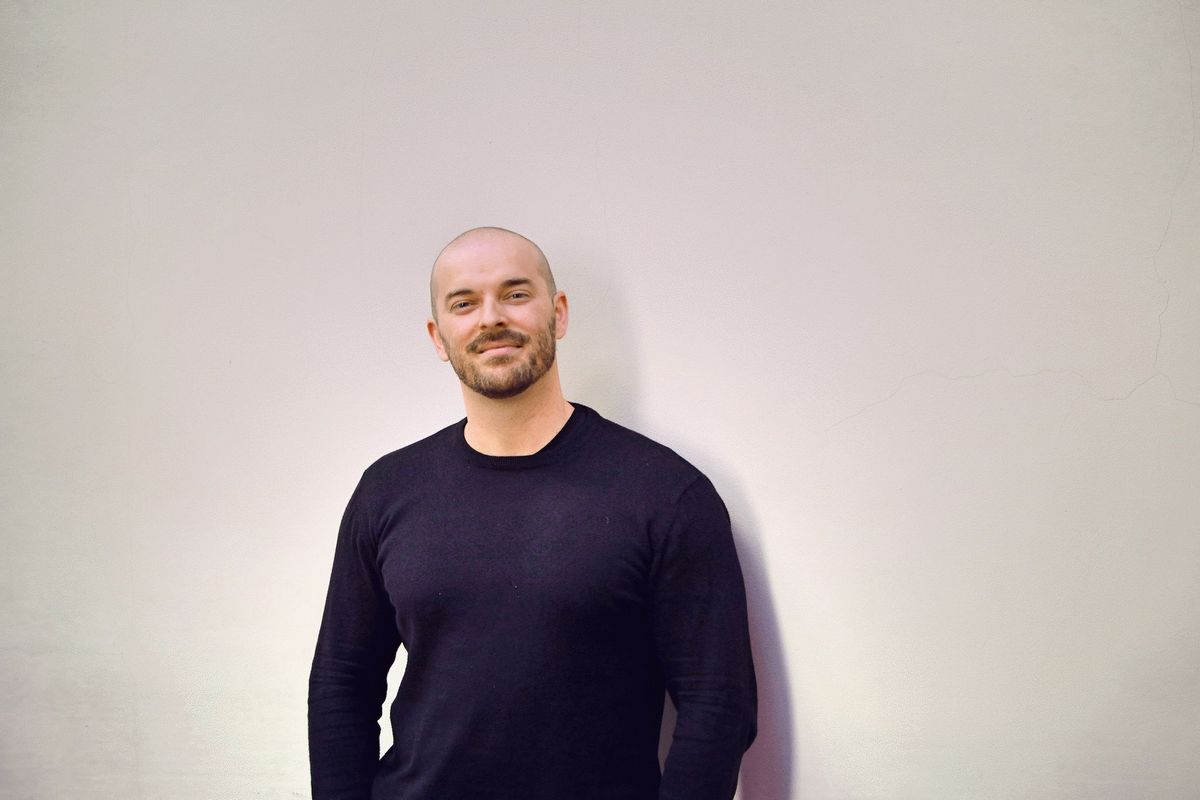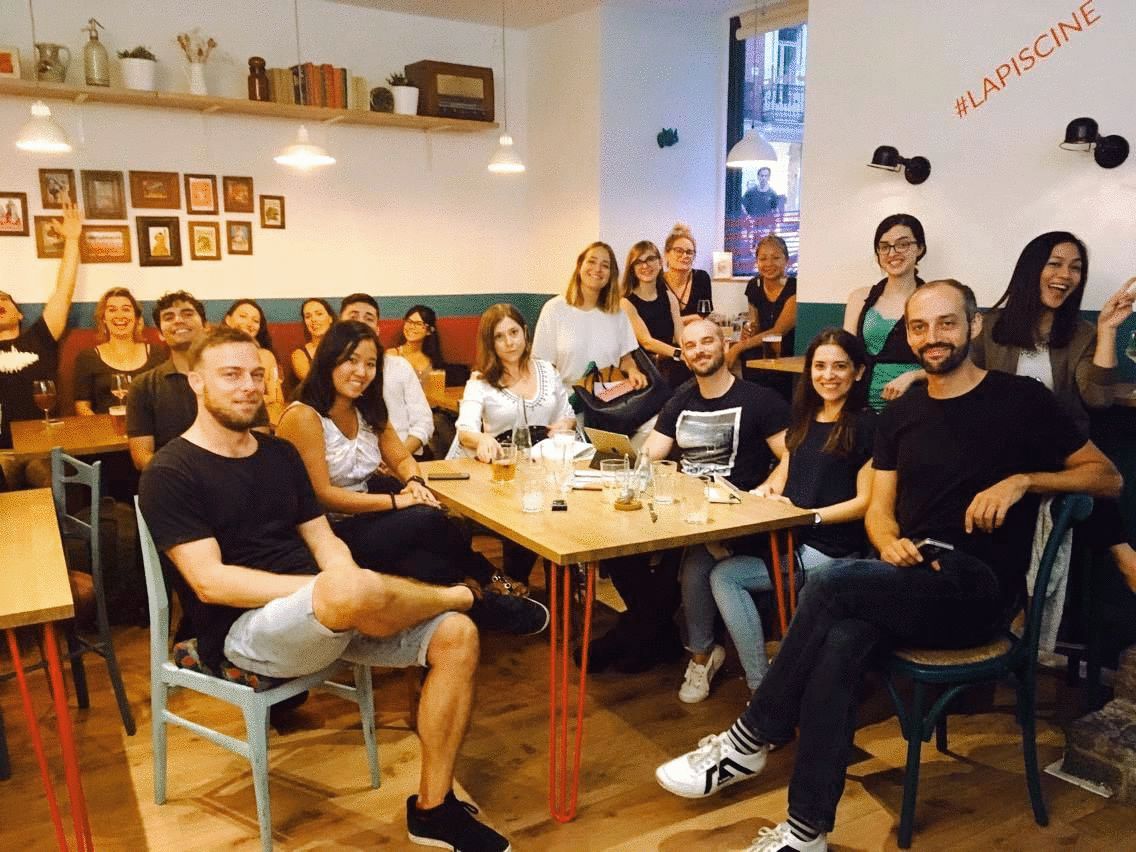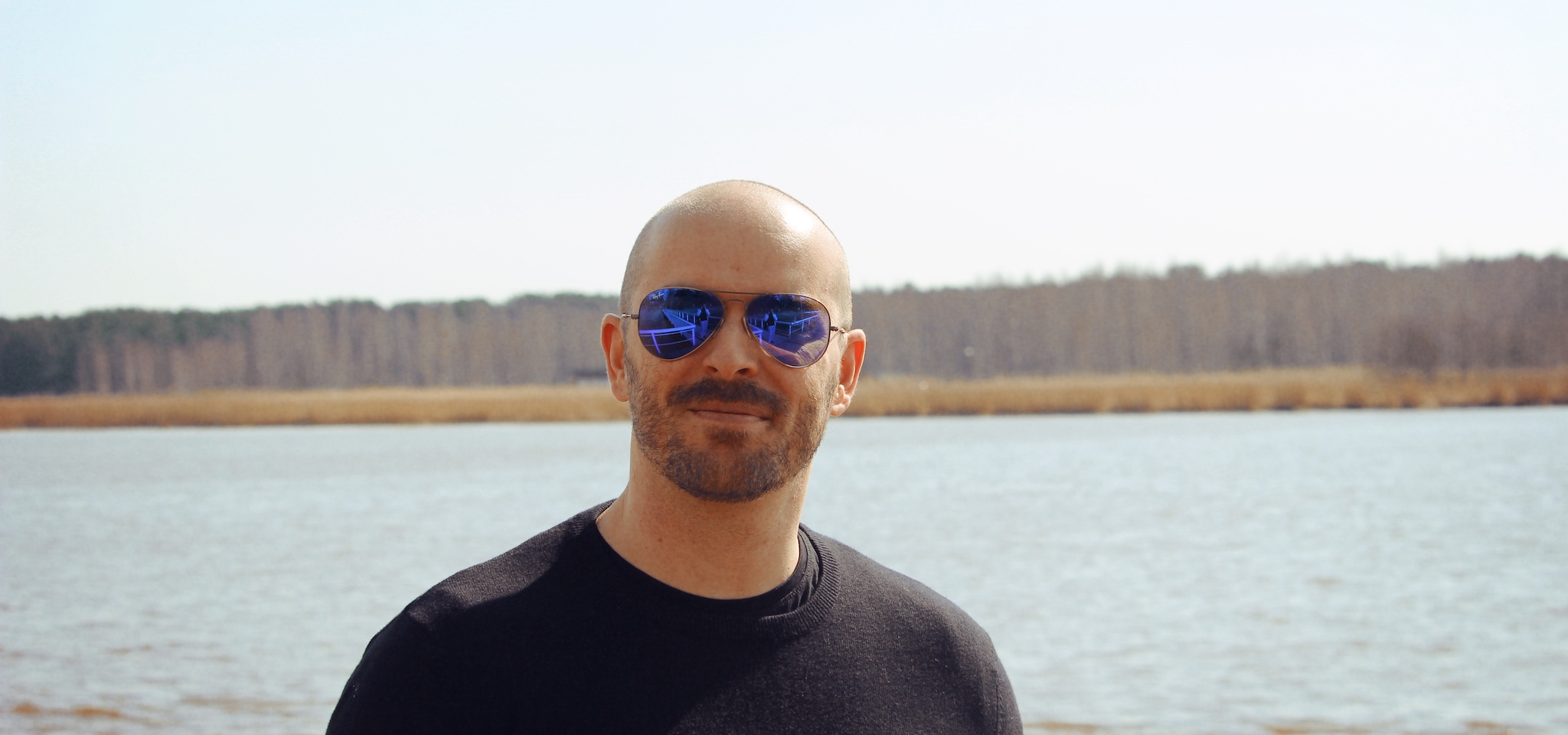How To Make A Living From Blogging In Less Than A Year

I can confidently say that I make a living from blogging. In fact, some months, my blog has been my main source of income. More than any of my companies. This is something I would have never imagined possible some years ago. In this post, I want to share my thoughts on how you can make a living from your blog in 2018.
In my case, it took me less than a year to get there. Concretely, in just 10 months I was earning enough money from it to call it “a salary”.
I deeply loathe these “how to get to 1.000.000 subscribers in two weeks” kind of posts written by “internet gurus”. They are nothing more than click bait to get subscribers, readers or viewers. I won’t pretend to have a silver bullet or technique you can use to start earning money from your blog, simply because it does not exist. My goal is sharing what worked and what didn’t work for me. Hopefully, you’ll find some of that useful. 🙂
My Story
My first experience as a blogger was almost a decade ago. Concretely, after I quit my job and started freelancing, I built a website to serve as a portfolio and showcase for my programming skills. I also decided to write a blog because I’d been told it was a good way to position myself as an expert in my area of expertise and attract potential customers. But also because I was so passionate about iOS programming that I wanted to help other developers.
Years later, while I was also into podcasting, I joined the Madrid Blogger Network. We were a very diverse group of professional writers, bloggers, podcasters and aficionados that met up regularly to talk about blogging or listen to a talk by one of the members. It’s sad to say, but there were almost no Spanish people in the group, mostly foreigners.
It was in one of those talks where I found myself avidly listening to Mr. Chorizo, while he was kindly describing how to monetize a blog. He had been living out of his blog for years, writing about tapas, wine and food in Spain for a foreign audience. He made it.
I listened to that talk with a mix of amazement and incredulity, jaw and eyes wide open. I knew that there were people living out of their blogs, but I sincerely thought they were just a bunch of “privileged guys” like Pat Flynn or Tim Ferris. Not someone like “Mr. Chorizo”.
For me, Digital Leaves was definitely a source of income, but not a passive one. It positioned me as an authority developing iOS applications and attracted a lot of customers and job opportunities. But this was completely different. This guy was talking about earning money without working 60 hours a week. And I was mesmerized.

Micropreneur Life
Micropreneur Life had just started some months before. It was born during a train trip from Murcia to Madrid. I had recently transitioned to a full-time micropreneur, and I was struggling with lots of things.
I decided that I wanted to share my thoughts, difficulties, and troubles to help others in my same situation, and also as a log of my entrepreneurial journey.
From the beginning, I found it easier to write on Micropreneur Life than on Digital Leaves. First, because there was no technical stuff involved. I didn’t need to write a program or library to upload to Github, alongside detailed programming instructions on how to solve a particular problem.
Secondly, because I was writing about things from a more personal point of view. Things I was experiencing. Things that worried me, or solutions that I had found for real life’s problems as an entrepreneur. I wrote faster, and I enjoyed the process a lot more.
I actually never thought, listening to Mr. Chorizo that day, that I would be able to earn real money from my blog. Not a fortune, but enough to make a living from blogging.
Here, I want to share with you my thoughts on what’s the proper way of getting there. I said “proper”, but not “certain”. There’s no silver bullet here.
Can You Make A Living From Blogging In 2018?
Yes, you can. When I started Micropreneur Life, I had no intention to monetize it at all. I didn’t follow any advice or best practice about the newsletter, social media, promotion, guest posts, or any other technique to get exposure, readers, audience or attract followers.
Trust me. If I made it, you can make it too.
I wrote the Digital Leaves blog during years and years, and never managed to earn a single euro directly from it. Comparing these two blogs, I can see why they are so different, and why I managed to earn a decent income from Micropreneur Life while failed miserably with Digital Leaves.
Yes, the Digital Leaves blog worked perfectly for its job. It brought me
How To Monetize Your Blog In 2018
Obviously, no case of success can be easily replicated. If that was the case, every Pat Flynn’s reader will be a successful blogger, earning 6-7 figures a year.
That’s why I didn’t want to write one of these SEO-ready articles like “Reach 1 million subscribers in one month”, or “the 7 secret techniques to earn $1000 in a year with the Amazon Affiliate program”…
Instead, I want to talk about the philosophy behind your blog, the spirit that will make it successful. That “something” that I think made Micropreneur Life different from Digital Leaves. Not about specific techniques to optimize your visits, or conversion funnels to turn readers into customers.
A Blog Is A Startup
I see a blog nowadays as a special type of startup. A very personal, one-man only startup.
Obviously, there are differences. The main goal of a blog is sharing relevant information with your readers and growing an audience, eventually monetizing it thanks to the value you add to your visitors. Conversely, the main goal of a startup is developing an innovative product, growing an initial user base, and then finding investment to grow globally.
However, both a blog and a startup share many similarities. Both can be started with literally no resources. They need to grow a user base by offering something valuable. They both start small, can potentially grow big, but most of them fail or are abandoned shortly after being born…
While I started Micropreneur Life without any commercial purpose, in my mind it helps to think of a blog as if it was a startup. Not a startup you build to sell, but a startup you build to solve a problem you care about and help others with that very same problem.
Solve A Problem Nobody Has Already Solved
Perhaps you are considering writing -yet another- travel blog, or a food blog. Maybe you love traveling and want to talk about your trips, or you enjoy food and want to share your best recipes with others.
Stop right now. Do you know how many travel blogs are out there? Do you know how many food blogs are out there?
Here’s a little secret, there are already like a gazillion blogs with posts on how cool Ko Pha-ngan is, or how to elaborate a gluten-free cheesecake. Not only the world does not need yet another post about that, but nobody really cares about your very particular view on the subject.
So before starting the next fashion/travel/lifestyle/food/whatever blog, think what you are adding to the blogosphere that is truly unique. Something that the rest of the world cannot talk about.
There’s a good exercise you can do: think about 10 topics you want to write about. Then, look for those posts online. Read those posts. Most probably, there will be many of them, some of them very well written. Think if there’s something you can add, something that makes the time it takes to read yours valuable.
For Micropreneur Life, I focus not only on micropreneurs (which is actually a very small niche on its own), but about a very eclectic mix of e-Residents, entrepreneurs who have opened companies in Estonia, and digital nomads. I think that gives me a very unique voice. You need to find yours.

Be Honest, Be Real, Be Humble
But most importantly, I talk about all these topics from personal experience. I travel the world with my partner, own two companies in Estonia, and have transitioned myself from cubicle rat to entrepreneur. Similarly, it’s important that you talk about things you know and have lived. Be honest.
The “fake it till you make it” philosophy has had a devastating impact on the blogosphere. As an example, while traveling through Europe, we met some fellow e-Residents. They were true digital nomads, like us, traveling and working on their business. We soon became friends.
One of the first things we talked about was how we all have met people pretending to be digital nomads and writing about it when they were just on vacations or taking a sabbatical year. That was a disappointment for us, and your audience will notice sooner or later. Be real.
Also, don’t hide your mistakes. We all make them. Embrace and showcase them. After all, we learn from our mistakes, not our success stories. So tell your readers about your errors, what you did wrong, what you could have done better, and how you fixed things. We are all humans, and people will actually respect you more if they see you are honest with them. Be humble.
So my advice: be honest, be real, be humble. Don’t fake things. Talk from your own experiences. Use your own words and your own voice. Don’t write for robots, or for Google ranks. Write for your readers, for your audience, for the people you are trying to reach and help.
Give, Give, And Then Give Some More
What will get people back to your blog is valuable content. They don’t care about you. They need information that is useful and relevant for them.
That means that, if you want your blog to grow, you need to stop caring about yourself, what you need or what you want. You need to share your experience, wisdom, and knowledge to help others. Without expecting anything in return.
Let me emphasize the “without expecting anything in return”. Like any startup, a blog is an uncertain business. It may fail to generate an audience or grow a large reader base and, even if it does -like in my case with Digital Leaves- monetizing it may be impossible.
So don’t write with money in mind. Write about something you feel passionate about, something you would share for free with others, something you can’t stop talking about to your friends. That’s what will make your content outstanding and ultimately attract readers.
And then perhaps, only perhaps, you will end up monetizing it.
Focus On What Matters
There’s a lot of noise in the blogging world. Lots of techniques, strategies, DOs and DON’Ts… Lots of articles telling you how to structure your posts like a conversion funnel, or how to promote your content, or how to organize your social media strategy…
Shocking news: none of that matters without good content. Yes, social media can give you exposure, and a newsletter is a must, and you should definitely promote your content…
But neither social media, your newsletter or any promotion campaign will make your readers stay, or generate organic growth, if your content sucks.
So stop getting obsessed about the technical aspects of blogging, and focus on what matters: generating content no one else can write. Just as any startup will fail if its product fails to solve a real problem, in spite of the money investors may inject into it, a blog will not survive if it does not contains useful, relevant and original content.
You should aim for organic growth and be found through organic searches. If you rely on Facebook, Instagram or your email list… something’s not quite right.

Monetize The Right Way… And For The Right Reasons
Some people say monetization is something you must plan from the very beginning of a blog. Before even writing a word. I would say the opposite is true.
If you start your blog thinking about how to monetize it, odds are, you don’t have a real passion for what you are going to write about.
So focus on giving value to your readers. How do you do it? Let me ask you with a question: what do you do, know or make that others don’t or can’t? What do you have to offer? Think about what you’ve been spending your time on, struggling with or obsessed about. That’s the answer.
Monetizing is not something you should plan before the content, it’s something that only makes sense because of the content. It’s the content that will naturally lead you to monetization.
Imagine that you are a digital nomad and work remotely, and you decide to start a blog about the difficulties of working on remote teams when traveling through different time zones.
Suppose you start using a software to easily arrange meetings with different members of a team remotely, allowing offline members to record some videos with their ideas to be broadcasted when they can’t assist due to time differences, and it also allows those members to watch the missed meeting… If that is a game-changing experience for you or your team, it’s only natural that you want to let others know. And it makes sense that you contact the software company that distributes that software and ask if they are interested in an affiliate link. Perhaps the company will contact you directly, but only if you have an audience. And you only get this audience by giving, giving and giving first.
Keep On Experiencing, Keep On Posting…
A blog is not “passive income” in the strict sense of the word. While it gets to a point where you don’t need to work on it to earn money, you need to keep it alive.
You need to write regularly and answer comments from people. You need to genuinely care about your audience, and keep on offering them useful information. That implies writing regularly.
How often? As often as you have something really valuable to share. Don’t write for the shake of writing. You’ll end up with a mediocre post. Only write when you truly have something relevant to say. Ideally, you should write once a week or every other week. But remember: don’t write unless you have something that will add value to your readers. Don’t go for filler posts.
Conclusion
With this post, I wanted to convey a message of both inspiration and realism at the same time. Is it possible to make a living from blogging in 2018? Definitely yes, but it’s a lot of work, it’s not guaranteed to succeed, and it’s not the reason why you should start a blog in the first place.
Like any other form of passive income, is not easy to make a living from blogging. If it was just a matter of creating a SaaS, a piece of music, or a book, everybody on earth would be rich.
However, if you start for the right reasons, share your knowledge altruistically with others, and offer something others need or find useful, you will be in the right track to find your niche, your audience, and then your market.




Comments ()